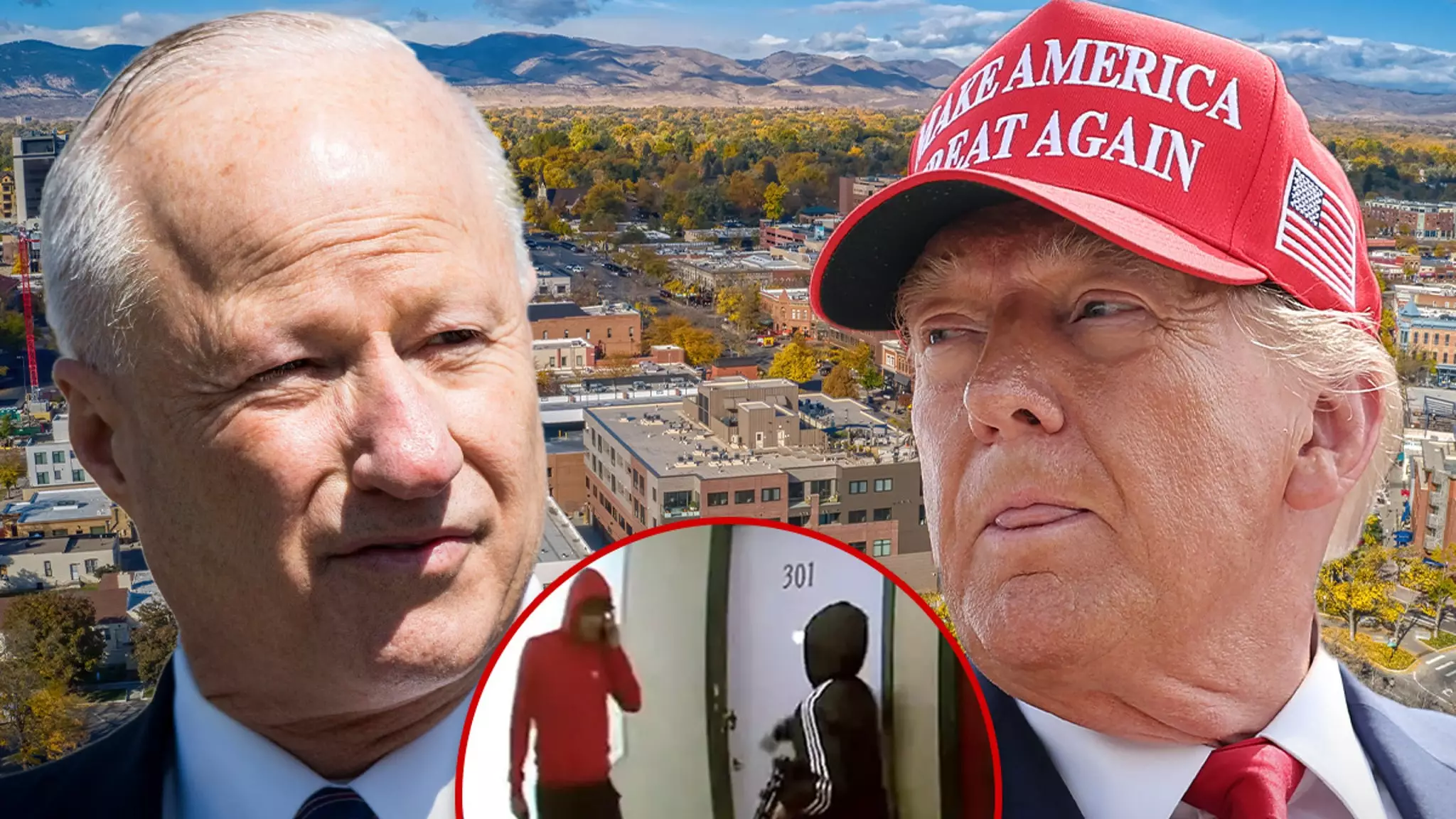The political landscape in the United States is often rife with hyperbole, particularly during campaign seasons. Recently, former President Donald Trump labeled Aurora, Colorado, a “war zone” in anticipation of a rally scheduled for Friday. This statement stems from Trump’s assertion that an influx of migrants has thrown the city into disarray, claiming a Venezuelan gang is inciting fear among residents. Such extreme characterizations raise questions about the veracity of Trump’s claims and the broader implications of rhetoric on community perceptions.
In stark contrast to Trump’s incendiary remarks, Aurora’s Mayor Mike Coffman has publicly challenged the narrative that depicts the city as a dangerous hotspot. Coffman, despite being a Republican and traditionally aligned with many of Trump’s policies, has deemed the concerns over gang activity to be exaggerated. His statement highlights that incidents involving armed gangs occurred in limited locations within the city, which boasts a population exceeding 400,000 residents. This acknowledgment of localized incidents versus a citywide crisis is crucial in maintaining a balanced perspective on public safety and community integrity.
The narrative fed by viral videos showcasing gang activities earlier in August has undeniably influenced public perception of Aurora. Yet, such media clips often lack context, leading to a distorted understanding of the city’s safety. Mayor Coffman emphasizes that while certain areas may face challenges, labeling the entire city as a bastion of violence does a disservice to its diverse and resilient community. By presenting an alternative view to Trump’s sweeping generalizations, Coffman aims to restore a sense of normalcy to residents who may feel intimidated by the fear-mongering rhetoric.
Interestingly, Mayor Coffman sees Trump’s impending visit as a platform to advocate for Aurora’s true character. Despite not aligning with the exaggerated claims from Trump’s camp, Coffman is ready to welcome the former president with open arms, highlighting the city’s safety and vibrancy. His invitation for a tour and briefing underscores a desire for constructive dialogue rather than confrontational exchanges. This approach reflects an eagerness to engage with national leaders while simultaneously managing the town’s image in a time of heightened political tensions.
Future Implications and the Responsibility of Leaders
As the rally approaches, it will be pivotal to observe whether Trump moderates his anti-immigrant rhetoric. Mayor Coffman’s commitment to showcasing Aurora as a secure and welcoming community poses an essential counter-narrative to the fear-driven messages often associated with political campaigns. This scenario raises broader questions about the responsibility of leaders to provide accurate accounts of their communities, especially as such narratives can significantly impact real lives and local economies.
Ultimately, the interplay between political discourse and community reality in Aurora could serve as a case study on the effects of rhetoric in shaping public perception and policy. The challenges of blending fact with opinion remain, but Coffman’s dedication to his city’s integrity stands as a reminder of the power of local leadership in the face of national narratives.

